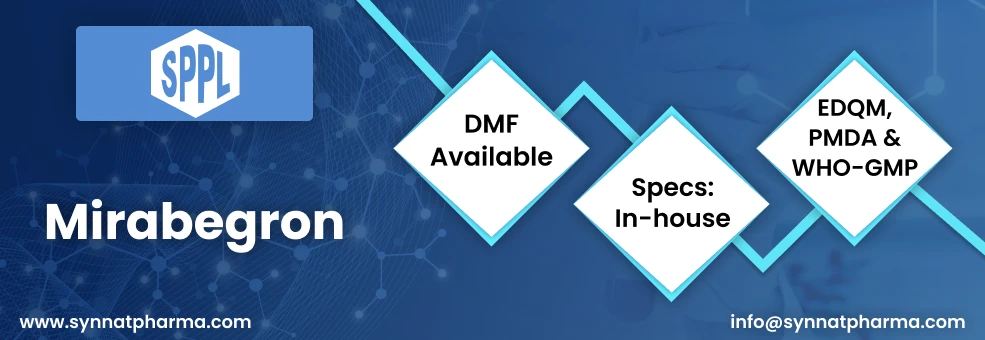The
third quarter (Q3) of 2025 witnessed a steady rise in Drug Master File (DMF) submissions to the US
Food and Drug Administration (FDA). DMFs are used to provide confidential,
detailed information about facilities, processes, or articles used in the
manufacturing, processing, packaging, and storing of human drug productsA
total of 323 Type II DMFs were submitted during this period, as opposed to 309
submissions in Q3 2024, marking an increase of 4.53 percent. This is the second
highest number since 2018. In Q1 2025, 339 Type II filings were
recorded.Across
all DMF types (II, III, IV, and V), 479 DMFs were filed in Q3 2025, compared to
394 in Q3 2024, representing a 21.57 percent increase. Out of the 323 Type II
DMFs submitted in Q3 2025, 40 had completed their review by the end of Q3,
reflecting a processing lag between submission and review completion. View FDA DMF Filings in Q3 2025 (Power BI Dashboard, Free Excel Available)China maintains its lead while India posts double-digit growth in
DMF submissions China and India continued to dominate DMF submissions in Q3 2025. China retained the top spot with 153 Type II DMFs, matching its submission count from Q3 2024. India recorded 131 DMFs,
marking a 20.18 percent increase over 109 filings during the corresponding
period last year.The
United States stood a distant third with 17 filings, compared to 13 in Q3 2024.
Among European nations, Italy recorded eight DMFs, doubling its 2024 tally. The
Netherlands filed four, up from three. Spain submitted only one DMF, as against
seven submitted in Q3 2024. Taiwan made three filings, up from one submitted in
Q3 2024. Together, India, China and Taiwan accounted for about 88.9 percent of
all Type II DMFs filed during the quarter. View FDA DMF Filings in Q3 2025 (Power BI Dashboard, Free Excel Available) China’s Suzhou Ryway Biotech tops corporate tally; India’s Hetero, Biophore followChina’s Suzhou Ryway Biotech led the company-wise tally
with 12 DMF submissions in Q3 2025. The company had not filed any DMFs in Q3
2024.India’s Hetero Group followed with nine DMFs,
maintaining the same number of filings as Q3 2024. Biophore India
Pharmaceuticals ranked third with six DMFs, doubling its count from three
last year.Other
notable contributors include Sai Sreyas Pharmaceuticals (India) and Shanghai Haoyuan
Chemexpress (China), with five DMFs each. Companies such as SNJ Group, Lunan Pharmaceutical, Allsino Pharmaceutical, Shankus Pharma, Jiangxi
Xinganjiang Pharmaceutical, Sunpure Extracts, Lee Pharma, Umedica Laboratories, Linhai Tianyu
Pharmaceutical and Maithri Drugs filed four DMFs each. View FDA DMF Filings in Q3 2025 (Power BI Dashboard, Free Excel Available) Olaparib, semaglutide lead molecular filings; Dr. Reddy’s files DMF for edoxaban & tucatinibDr. Reddy’s Laboratories also featured among key DMF filers in Q3 2025, submitting two DMFs — for edoxaban tosylate
monohydrate and tucatinib copovidone. Edoxaban tosylate monohydrate (marketed as Savaysa by Daiichi Sankyo) is a prescription
anticoagulant used to reduce the risk of stroke and to treat deep vein
thrombosis and pulmonary embolism. Patent exclusivity for Savaysa extends until
October 2026 in the United States, with no generic currently available.In
terms of molecules, the highest number of DMFs were filed for olaparib, semaglutide, ruxolitinib phosphate, ferric carboxymaltose, and vismodegib, with three DMFs each in Q3
2025.Olaparib, sold by AstraZeneca under the brand name
Lynparza, saw DMFs being filed by BDR Lifesciences and Intas Pharmaceuticals from India, and by ScinoPharm Taiwan during the quarter.Semaglutide, a glucagon-like peptide-1
(GLP-1) receptor agonist developed by Novo Nordisk, continued to draw strong interest from API manufacturers. DMFs
for semaglutide were filed by three Chinese companies: Yangzhou Aurisco Pharmaceutical, Zhejiang Peptites Biotech, and Fujian Genohope Biotech.Ruxolitinib phosphate, marketed by Incyte as Jakafi, saw three DMFs. Three Indian companies — Alembic Pharmaceuticals, Valary Labs, and Devi Pharmatech — filed DMFs for this API in Q3 2025. Other molecules that received multiple DMF submissions include ferric carboxymaltose (used to treat
iron-deficiency anemia) and vismodegib (an oral therapy for
basal-cell carcinoma). View FDA DMF Filings in Q3 2025 (Power BI Dashboard, Free Excel Available) First-time DMF filings span 17 companies; India leads with nine
first-time DMFs The quarter saw first-time DMF filings from 17 companies. India took a lead here with nine first-time DMF filings, followed by China (six), and the US (two).The DMF filings in this quarter included inclisiran sodium (filed by Aurisco Pharmaceutical of China), pacritinib citrate (by TAPI Nl B.V. of the Netherlands), and vosoritide (by Apicore LLC of the US).Out
of the 19 first-time DMFs filed in Q3 2025, four completed their Generic Drug
User Fee Amendments (GDUFA) review process during the quarter. View FDA DMF Filings in Q3 2025 (Power BI Dashboard, Free Excel Available) GDUFA fee for FY 2026: The FDA Generic Drug User Fee Amendments (GDUFA) is a law designed to speed access to safe and effective
generic drugs to the public and reduce costs to the industry.Fee
rates for fiscal year 2026 were published on July 30, 2025. FDA has revised fees under GDUFA III across all categories. While there is a slight increase in the DMF fee from US$ 95,084 in 2025 to US$ 102,584 in 2026, the ANDA fee has seen a sharp rise: from US$ 321,920 in 2025 to US$ 358,247 in 2026.FY
2025 and FY 2026 User Fee Rates
Generic
drug fee category
Fees
rates for FY 2025
Fees
rates for FY 2026
Applications:
Abbreviated
New Drug Application (ANDA)
US$
3,21,920
US$
3,58,247
Drug
Master File (DMF)
US$
95,084
US$
1,02,584
Facilities:
Active Pharmaceutical Ingredient (API)—Domestic
US$
41,580
US$
43,549
API—Foreign
US$
56,580
US$
58,549
Finished Dosage Form (FDF)—Domestic
US$
2,31,952
US$
2,38,943
FDF—Foreign
US$
2,46,952
US$
2,53,943
Contract Manufacturing Organization (CMO)—Domestic
US$
55,668
US$
57,346
CMO—Foreign
US$
70,668
US$
72,346
GDUFA
Program:
Large
size operation generic drug applicant
US$
18,91,664
US$
19,18,377
Medium
size operation generic drug applicant
US$
7,56,666
US$
7,67,351
Small
business generic drug applicant
US$
1,89,166
US$
1,91,838
Our viewFor several years prior to
the pandemic, India had a lead in Type II DMF submissions. In recent years,
China has surpassed India in DMF filings. But Q3 2025 numbers indicate that
Indian drugmakers are fast catching up. Since DMFs establish trust in APIs from
across the world, we feel this healthy competition between drugmakers from the
two countries is good for the global pharmaceutical industry.








